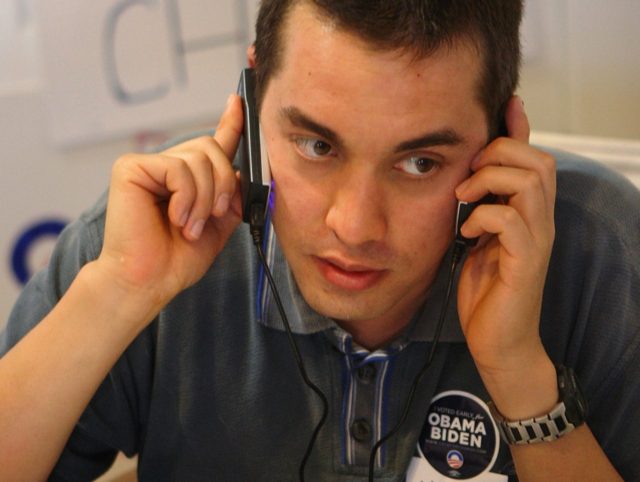Democratic voters in the early caucus states of Iowa and Nevada will be able to participate by telephone, according to new rules adopted by the Democratic Party ahead of the 2020 presidential primary.
The Associated Press reported Monday:
Democrats in the early presidential contest states of Iowa and Nevada will be able to cast their votes over the telephone instead of showing up at their states’ traditional neighborhood caucus meetings next February, according to plans unveiled by the state parties.
The tele-caucus systems, the result of a mandate from the Democratic National Committee, are aimed at opening the local-level political gatherings to more people, especially evening shift-workers and people with disabilities, whom critics of the caucuses have long said are blocked from the process.
The changes are expected to boost voter participation across the board, presenting a new opportunity for the Democratic Party’s 2020 candidates to drive up support in the crucial early voting states.
An estimated 20% of Democratic voters are expected to participate by telephone, the AP notes.
The Iowa caucuses, to be held Feb. 3, are traditionally the first event of the 2020 campaign. The Nevada caucuses, on Feb. 22, will be the third.
Traditionally, the caucus model is meant to allow voters — especially in rural states — to come together to discuss, collectively, whom they will support as their party’s candidate. It is a deliberative model of democracy.
The provision that voters may participate via telephone removes some of the face-to-face interaction that is part of the caucus process — but has the political advantage of engaging more participants.
The fact that voters, in the past, have had to show up physically to participate in caucuses has also led to accusations and counter-accusations by various presidential campaigns, who have alleged that their supporters were excluded or otherwise frustrated.
In 2008, the campaigns of both Barack Obama and Hillary Clinton complained about tactics that the other side used in Nevada. In 2016, supporters of Ben Carson accused the Ted Cruz campaign of misleading caucus-goers about their candidate’s intentions to stay in the race.
It is not clear how allowing participation by telephone would make fraud less likely. Democrats are, separately, pushing for voting reforms across the country that would remove many of the safeguards against fraud, on the argument that voting needs to be made easier and more accessibly to be truly democratic.
Joel B. Pollak is Senior Editor-at-Large at Breitbart News. He is a winner of the 2018 Robert Novak Journalism Alumni Fellowship. He is also the co-author of How Trump Won: The Inside Story of a Revolution, which is available from Regnery. Follow him on Twitter at @joelpollak.

COMMENTS
Please let us know if you're having issues with commenting.